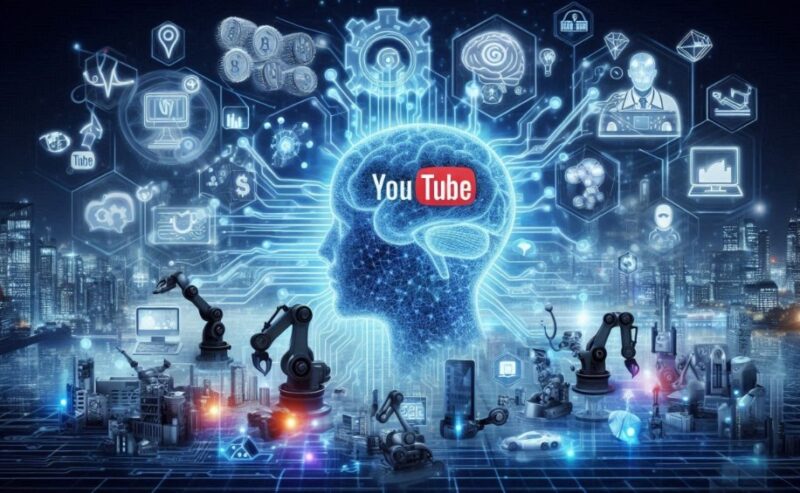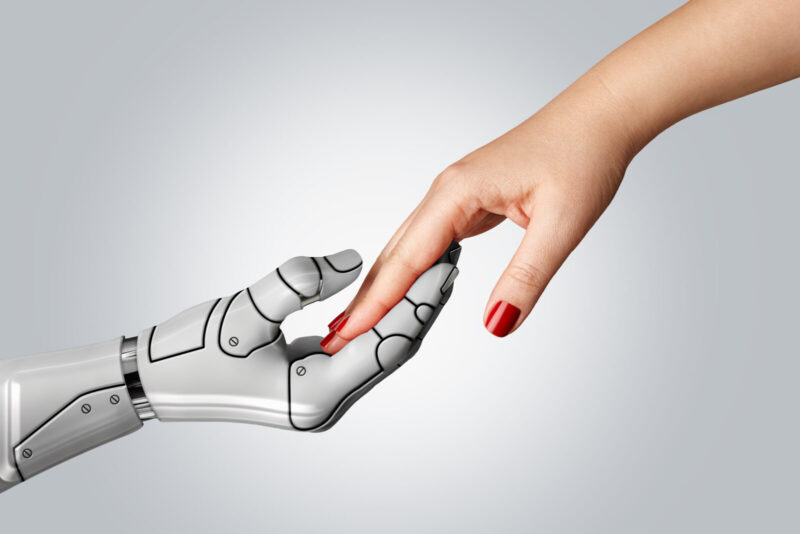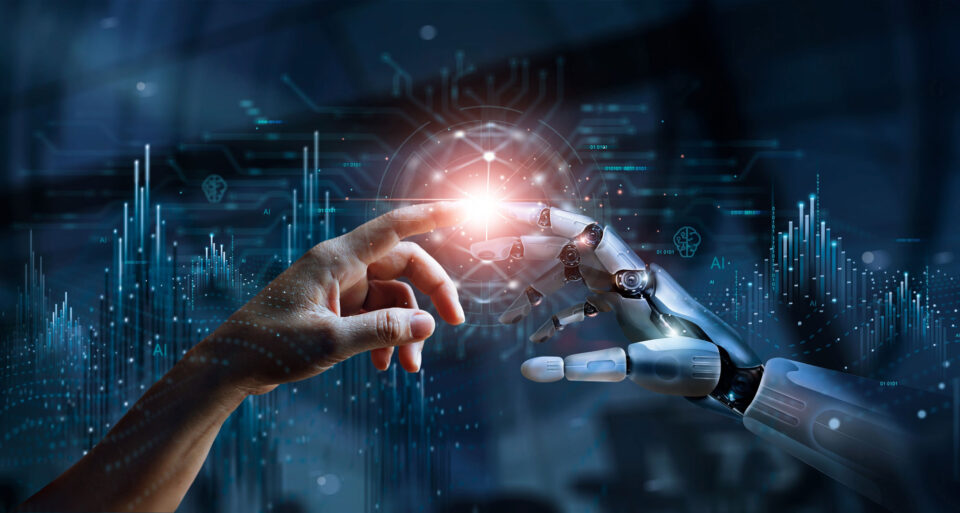The rise of artificial intelligence (AI) in recent years has led to a transformative shift across various sectors, from healthcare to transportation, but perhaps nowhere is its impact more visible than on the internet. AI is reshaping everything from how we consume media, interact with social platforms, communicate via email, and engage with advertisements, to how we navigate daily online experiences.
As AI’s presence continues to grow, the question arises: how will humans react to the increasing AI takeover of the internet?
The Pervasiveness of AI in Digital Platforms
AI is already embedded in many aspects of the internet. Whether through recommendation algorithms on YouTube, automated email filters, or personalized ads on social media, the internet is being molded by machine learning systems. While these AI tools provide convenience, they also raise questions about privacy, control, and the impact on human creativity and agency.
In exploring human reactions, it’s helpful to look at specific areas where AI is playing a prominent role: YouTube, email, social media, and online advertising. Each of these spheres provides unique insights into the relationship between AI and human users.
YouTube ─ AI as the Gatekeeper of Content

YouTube’s recommendation system is a key example of how AI can shape online experiences. AI algorithms curate content based on user behavior—what videos they watch, how long they engage, and their interaction patterns. For many users, this system is a double-edged sword. On one hand, it provides personalized content that aligns with their interests, making discovery effortless. On the other hand, it creates “echo chambers” where individuals are continuously exposed to content that reinforces their pre-existing beliefs, limiting exposure to diverse viewpoints.
Humans may increasingly push back against the feeling of being manipulated by these algorithms. As users realize the extent to which AI controls their media diet, they may demand more control over the content they are shown, fostering a trend toward decentralization and user empowerment. On the flip side, many will remain passive, appreciating the convenience without questioning the potential societal implications of AI’s influence on information flow.
Moreover, as AI-generated content—such as deepfakes or algorithmically produced videos—becomes more sophisticated, people may struggle to discern between authentic and AI-created content. This could lead to a growing skepticism towards online media and an erosion of trust in digital platforms, which may prompt platforms like YouTube to introduce transparency measures to indicate whether content is human- or AI-generated.
Email ─ AI and the Automation of Communication
AI has already significantly transformed email communication. Spam filters, predictive text, and automated responses—like Gmail’s Smart Reply feature—are powered by AI. For many, this automation is a welcome relief, speeding up communication and reducing inbox clutter.
However, as AI continues to evolve, it is likely that email will become even more autonomous. Imagine AI writing full emails on your behalf, anticipating your responses based on prior conversations. While this level of convenience may be appreciated by some, others may resist the increasing depersonalization of communication. Email, a medium once rich in personalized exchanges, could become more transactional and less human in tone as AI handles routine communication tasks. This also opens a large door to AI generated scams.
The reaction to this trend will likely be mixed. Some users will embrace the efficiency, particularly in professional contexts, where time-saving tools are highly valued. Others, however, may feel uncomfortable with the loss of personal expression in email interactions, viewing AI-driven communication as impersonal and robotic.
Social Media ─ AI Shaping Identity and Perception

Social media is another area where AI exerts immense influence. Algorithms on platforms like Facebook, Instagram, and Twitter determine what posts users see, how content is ranked, and what advertisements are displayed. These AI systems are designed to maximize engagement, often by amplifying emotionally charged content that captures attention and drives interaction.
As a result, users may experience social media burnout or disillusionment, feeling that their online identities are being manipulated for corporate gain. The curated nature of social media—driven by AI’s quest to maximize clicks, likes, and shares—can lead to feelings of inadequacy, anxiety, and FOMO (fear of missing out). For many, the realization that AI is subtly influencing their self-perception and interactions may lead to calls for greater transparency and ethical AI use in social media.
Moreover, as AI-driven bots and fake accounts become more sophisticated, distinguishing between genuine human interaction and automated responses could become challenging. This rise of AI-generated content on social media may lead to a more cynical view of online interactions, with users becoming skeptical of the authenticity of posts and connections. Over time, platforms may face pressure to implement stricter verification processes to maintain user trust.
At the same time, some will lean into AI’s potential for creating engaging content. AI tools that assist with photo editing, video production, and post suggestions are already being used by influencers and brands to streamline their content creation. As these tools become more accessible, we may see a surge in AI-assisted creativity, raising debates about the value of human creativity versus machine-generated aesthetics.
Online Advertising ─ AI’s Targeting Precision

AI’s impact on advertising is perhaps the most visible aspect of its takeover of the internet. Machine learning algorithms analyze user behavior to deliver highly targeted ads based on individual preferences, browsing history, and even predicted future actions. This level of personalization has made online advertising more efficient and profitable, but it has also raised significant privacy concerns.
Many users are already uncomfortable with the invasive nature of targeted advertising, where ads seem to “follow” them around the internet. As AI-driven ads become even more tailored—perhaps predicting needs users haven’t consciously expressed—the backlash may intensify. People may increasingly demand more control over how their data is used, or even opt for platforms that offer ad-free experiences in exchange for subscription fees.
On the other hand, some may appreciate the relevance of AI-curated ads, particularly when they align with their interests and needs. The key challenge for advertisers and platforms will be finding a balance between personalization and privacy, ensuring that AI-driven advertising doesn’t cross into the realm of exploitation.
AI in News and Information ─ The Battle for Truth

AI’s role in news dissemination is growing, with machine-learning systems capable of generating articles, summarizing content, and predicting which news will resonate with readers. However, this raises concerns about the quality and authenticity of the information being shared. The increasing presence of AI in newsrooms may lead to a devaluation of human journalism, as AI-written content is cheaper and faster to produce.
For consumers, this could result in a more homogenized news landscape, where algorithms decide what is important based on engagement metrics rather than journalistic integrity. Some will push back, seeking out independent, human-produced news sources to counterbalance AI-generated content. Others may not notice or care, about content with the convenience of AI-curated news feeds.
The Human Response ─ Acceptance, Resistance, and Adaptation

The human reaction to the AI takeover of the internet will likely be a spectrum ranging from enthusiastic acceptance to staunch resistance. Many will embrace AI for its ability to simplify and enhance online experiences, viewing it as a tool that brings efficiency and personalization. For these users, AI will be a valuable assistant, taking over mundane tasks and allowing them to focus on more meaningful activities.
However, there will also be resistance. Some users will push back against the loss of control and autonomy, feeling uncomfortable with the level of surveillance and manipulation AI enables. This group may advocate for greater transparency, more ethical AI practices, and stronger privacy protections. We may see a rise in decentralized platforms, where users can escape the influence of centralized AI-driven systems and reclaim some control over their digital experiences.
Adaptation will likely be the middle ground for most people. As AI continues to evolve, humans will adjust to its presence, learning to navigate a landscape where machines play a significant role in shaping the internet. While AI will undoubtedly change how we interact with the web, humans will continue to seek ways to maintain their agency, creativity, and sense of identity in this new digital era.
In conclusion, the takeover of AI on the internet will be met with a range of reactions, shaped by the ways AI impacts individuals’ online experiences. Whether through passive acceptance, active resistance, or strategic adaptation, humans will continue to evolve alongside the technology that reshapes the digital world.

